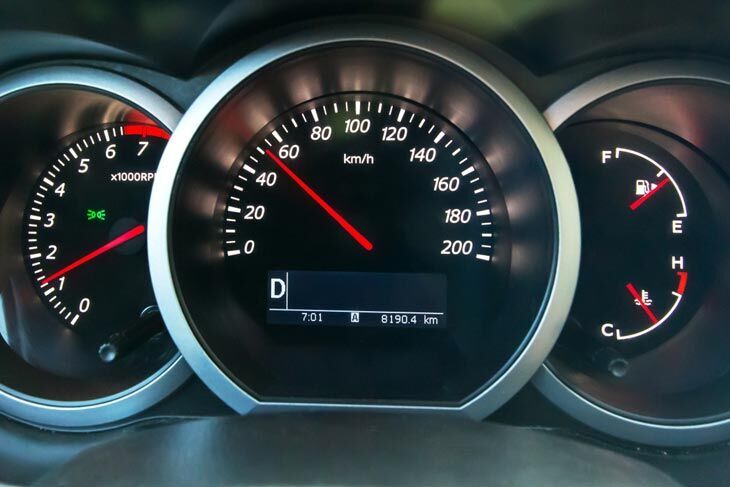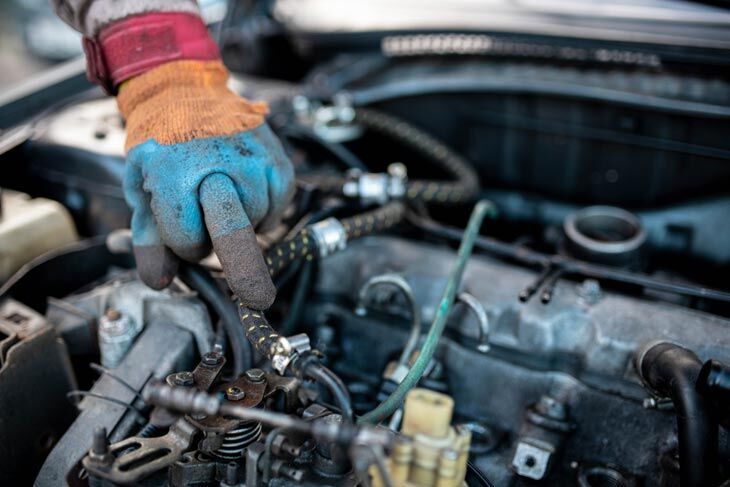
If you are driving on your way and realize that the vehicle is losing power once you accelerate, the most common reason is the fuel decrease due to the dirty fuel filter, bad gasoline, or faulty fuel injector.
Besides, the second one is the lack of power and some technical issues that need expert care.
1. The Quick Fixes
car will not go over 60 mph .Car Fuel
Once the fuel in the tank is nearly used up, there is not enough power required for your cars acceleration.
At the same time, bad gasoline may be formulated with debris or dirt, which clogs up the filters and lines.
There are even further issues caused by gas at an inappropriate octane for the car.
Then, your car will not accelerate past 60 due to fuel issues. Thus, remember to have the tank refilled with relevant types of fuel.
2. Dirty Parts
It results in bad acceleration performance, and your car wont go past 60 . In this situation, alter the dirty fuel filter to deal with this problem.
Fuel Injector
The function of a fuel injector is to supply a proper fuel amount to the cars combustion chamber.
However, if this element is clogged, the fuel flow is inpaired, causing poor engine performance and accelerating issues.
You can clean it by using a fuel injector kit or adding some cleaning additive to the gas tank. In case you are not skillful enough, take it to a professional for analyzing and fixing.
Mass Air Flow Sensor (MAF) Or Oxygen Sensor
The mass air flow sensor measures the air mass that enters the fuel injection and sends the recordings to the car ECU.
Thanks to this information, the engine will receive a relevant amount of fuel for burning.
When the MAF sensor or the O2 sensor goes wrong or gets clogged, it produces incorrect reading, which will then affect the acceleration and your car wont go over 60.
The typical signs of its malfunction are abnormal power jolts, poor fuel economy, lean idling, or black fumes released from exhaust gasses pipes.
3. Technical Difficulties
This element is accompanied by a check engine light and can get triggered by numerous things. Most of those cases need to be analyzed by qualified professionals.
A Bad Clutch
A clutch system of a modern vehicle has a durability of more than 100,000 miles.
When the clutch does not function well in engaging the engine with transmission fluid, there will be acceleration problems happening.
Once the vehicle speed varies with no deceleration or acceleration during heavy carriage or uphill driving, it results in either low levels of transmission fluid or a bad clutch.
The slipping clutch also overheats the surrounding parts, and the car wont go above 60 .
Problematic ECU
ECU stands for the Electronic Control Unit , which is the vehicles brain.
This component calculates all the information and readings transferred from the sensors and then adjusts the fuel as well as the energy output.
When vehicle sensors are out of order, the air intake or pollution identification readings will go wrong. It is time you take your vehicle out for a professional check.
Throttle Position Sensor (TPS) Malfunction
The TPS, or Throttle Position sensor, has a great influence on the engine intake system.
It monitors the valve opening angle of the throttle valve controlled by the accelerator pedal. The data after detection will be sent to the engine ECU of the vehicle.
When the TPS fails, the accelerator pedal can not control the speed of the engine properly. In this case, acceleration will not help the car reach a higher engine speed.
Timing Belt
The timing belt is one of the key components in your engine. When one tooth is off or misaligned, the power level will decrease, and the acceleration gets affected.
Besides the problems of misalignment, the malfunction of a worn-out timing belt hinders the accelerating process.
Bad Catalytic Converter
The catalytic converter functions to guarantee the exhausted gas is eliminated from the engine. Thus, the gasses are trapped in the vehicle engine housing when the converter malfunctions.
The blocked gasses produce great pressure leading to the power loss of the engine.
Under more serious circumstances, it can catch fire. Thus, turn off the engine immediately when the engine has a thumping noise or releases a sulfur smell.
Compression Issues
There are vacuum lines designed to support clean fuel and air delivery to numerous parts of the vehicle.
When the compressor or at least one of those lines is failed or broken, it causes the malfunction of the engine and the acceleration.
Particularly, it is likely that the car wont go past 60. In these cases, the best solution is to take the car to a mechanical shop for careful analysis and repair.
FAQ
Dois-je ignorer les problèmes d'accélération?
Bien que les problèmes d'accélération ne soient pas extrêmement graves, cela ne signifie pas que vous devez les ignorer.
Si vous ne faites aucun ajustement ou réparation, l'accélération problématique ne sera jamais supprimée; Au lieu de cela, les problèmes mécaniques aggravent et augmentent les chances d'accidents.
La plupart des conducteurs ne se préparent pas à des connaissances professionnelles et des compétences pour l'analyse et la fixation.
Ainsi, faites attention aux signes d'une accélération ratée et amenez votre véhicule à un expert dès que possible.
Dois-je emmener ma voiture chez un mécanicien professionnel lorsqu'il n'accélère pas?
Pour les conducteurs nouveaux ou amateurs, il est recommandé de demander l'aide d'un expert lorsque votre véhicule n'accélère pas. Comme mentionné ci-dessus, il existe un large éventail de raisons provoquant des problèmes d'accélération.
Bien que la plupart d'entre eux incluent des problèmes d'usure courants, ne conduisez pas trop lentement pour éviter les accidents ou les amendes financières.
Pourquoi la conduite trop lentement est-elle dangereuse?
Les forces motrices ralentissent entourant les véhicules à s'adapter à votre vitesse, ce qui entraîne une augmentation des taux d'accidents.
Conclusion

If you can not recognize and diagnose the faulty condition timely, your car wont accelerate past 60. Once you can locate the root of the malfunction, it is easier to solve the problem.
Essayez d'avoir une vitesse autorisée même lorsque vous avez des problèmes d'accélération pour garantir la sécurité de vous-même et les conducteurs environnants.
